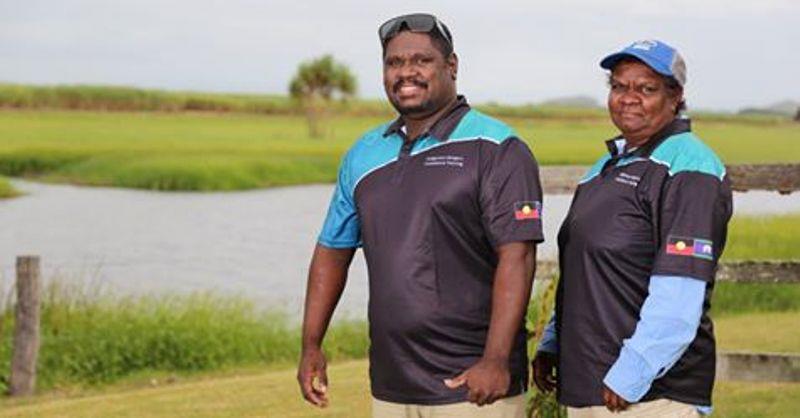
Training program a win-win for Indigenous rangers and reef
by GBRMPA Media 5 Jun 2018 10:48 UTC

Training program for Indigenous rangers and reef © GBRMPA Media
Twenty-three Indigenous rangers from across Queensland are brushing up on their compliance and enforcement knowledge and will join marine managers on patrols in the Great Barrier Reef Marine Park.
Funded by the Australian Government, the rangers are completing a nationally-accredited Certificate IV in Government Investigations (Regulatory Compliance) at Mungalla Station near Forrest Beach from 13-19 May.
Great Barrier Reef Marine Park Authority assistant director field management compliance coordination Peta Ross welcomed the opportunity to train and work with Indigenous rangers.
"Working with Traditional Owners to deliver programs that improve the skills and capabilities of our Indigenous rangers is a win-win," Ms Ross said. "It will provide trainees with career opportunities and pathways and enable them to contribute to the protection and resilience of the Great Barrier Reef.
"Traditional Owners are the historical custodians of the Reef and investing in their education and career development will pay dividends when it comes to supporting and managing sea country and the Marine Park.
"Indigenous rangers are invaluable as 'eyes and ears' in the Marine Park — many rangers come from, live and work in remote communities and bring extensive local knowledge and insights.
"The training will equip Indigenous rangers with the necessary skills to ensure compliance with Marine Park laws, rules and traditional lore."
This training is funded by the Government's Indigenous Advancement Strategy, as part of a project to build the capacity of Indigenous rangers.
It follows the highly successful Indigenous Ranger Compliance Enhancement Program, which saw 17 Indigenous Rangers receive inspector powers in March this year.
The course comprises 13 different subjects with most participants expected to complete their study within 12 months.
Marine Park Authority staff will provide ongoing mentoring and support, including practical experience in court processes and on-water and aerial surveillance.
On graduating, rangers will be eligible to be appointed as Inspectors under Marine Park legislation and operate with the support of the Marine Park Authority's compliance program.
The training is also an opportunity for other agencies — such as Queensland Parks and Wildlife Service, Queensland Boating and Fisheries Patrol, Torres Strait Regional Authority, Reef and Rainforest Research Centre, Australian Institute of Marine Science and tourism operators — to build partnerships with the rangers.